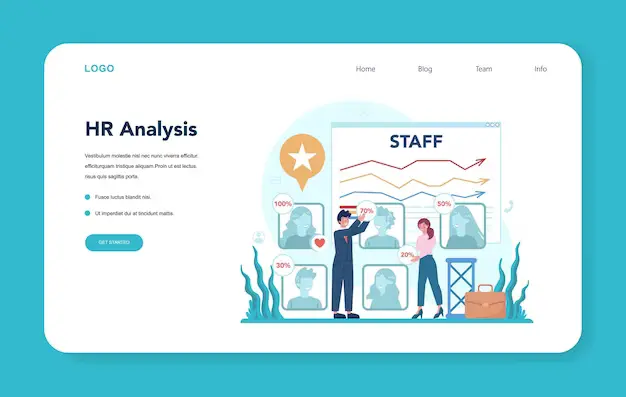What Can I Do with a Masters in Human Resources?

If you have recently earned a degree in Human Resources, you may be wondering what career opportunities await you in this field. With the growing importance of HR professionals in today’s business world, there are plenty of exciting and rewarding jobs you can pursue as an HR.
In this comprehensive guide, we will explore the various job opportunities available to individuals with a Masters in Human Resources, as well as the skills and qualifications required for each role. Whether you are interested in recruitment, employee relations, training and development, strategic HR management, or specialty roles, this article will provide valuable insights to help you make informed decisions about your career path.
1. Compensation and Benefits Manager
One of the key roles in human resources is that of a Compensation and Benefits Manager. These professionals are responsible for designing competitive compensation packages and selecting employee benefit programs. With their expertise in labor market trends and insurance market knowledge, they help organizations attract and retain top talent.
Compensation and Benefits Managers conduct research to ensure that the company’s compensation structure aligns with industry standards and best practices. They also collaborate with other HR professionals and management to develop strategic plans that balance the organization’s budget requirements with the need to attract and motivate high-performing employees. Sometimes, compensation and benefits managers may support compensation committee responsibilities, like conducting pay equity analyses, preparing executive compensation reports, or ensuring compliance with governance standards, by providing critical data and recommendations.
To excel in this role, a strong background in data analysis and research is crucial. Compensation and Benefits Managers should possess excellent communication skills to effectively convey compensation plans and policies to employees. Additionally, staying updated on the latest trends and regulations in compensation and benefits is essential for success in this role.
2. Labor Relations Specialist
Labor Relations Specialists play a vital role in ensuring that organizations comply with local, state, and federal labor laws. These professionals are responsible for maintaining positive relationships between employees and management, particularly in unionized environments. Labor Relations Specialists serve as the liaison between the organization and labor unions, negotiating collective bargaining agreements and resolving disputes. They provide guidance to management on labor-related matters, ensuring compliance with legal requirements and avoiding labor-related lawsuits.
To succeed as a Labor Relations Specialist, a deep understanding of labor laws and regulations is crucial. Strong negotiation and conflict resolution skills are also essential for effectively handling labor disputes. Additionally, staying updated on changes in labor laws and industry practices is important for providing accurate and up-to-date advice to management.
3. Recruitment and Staffing Specialist
If you have a passion for finding the right talent for organizations, a career as a Recruitment and Staffing Specialist may be the perfect fit for you. These professionals are responsible for attracting and screening candidates, coordinating the hiring process, and ensuring the organization has a skilled and diverse workforce. Recruitment and Staffing Specialists work closely with hiring managers to understand their needs, develop job descriptions, and implement effective recruitment strategies. They conduct interviews, check references, and assess the qualifications of candidates to make informed hiring decisions.
To excel in this role, strong interpersonal and communication skills are essential. Recruitment and Staffing Specialists should have a keen eye for talent and the ability to assess candidates’ qualifications effectively. They should also stay updated on the latest recruitment trends and strategies to attract top talent in a competitive job market.
4. Training and Development Specialist
Training and Development Specialists play a critical role in helping organizations enhance their employees’ skills and knowledge. These professionals design and implement training programs to improve employees’ performance and ensure their professional growth. Training and Development Specialists collaborate with management to identify training needs, develop training materials, and deliver engaging and effective training sessions. They may also be responsible for evaluating the success of training programs and making necessary adjustments.
To succeed in this role, Training and Development Specialists should have excellent presentation and facilitation skills. They should be able to identify training needs and develop customized programs to address them. Additionally, staying updated on industry trends and emerging technologies is crucial for designing relevant and impactful training programs.
5. Human Resources Manager/Director
Human Resources Managers/Directors are skilled professionals who oversee all aspects of Human Resources Management challenges within an organization. In smaller companies, they may be responsible for running the entire HR department, advising upper management on HR strategies, and ensuring compliance with relevant laws and regulations. In larger organizations, HR Managers/Directors may oversee specific HR departments such as recruitment, training, or compensation and benefits. They develop and implement HR policies, handle employee relations issues, and provide guidance to management on strategic HR initiatives.
To excel in this role, HR Managers/Directors should have a comprehensive understanding of all facets of human resources. They should possess strong leadership and decision-making skills to effectively manage HR teams and guide the organization’s human capital strategies. Staying updated on the latest HR trends and best practices is crucial for success in this role.
Conclusion
Earning a Master’s in Human Resources opens up a world of possibilities in various HR career paths. Whether you are interested in compensation and benefits, labor relations, recruitment, training and development, or strategic Human Resource Management, there are ample opportunities to leverage your expertise and make a meaningful impact on organizations. By acquiring the necessary skills, staying updated on industry trends, and continuously developing your knowledge, you can position yourself as a valuable asset in the field of human resources. So, take the next step in your career journey and explore the exciting opportunities that await you with a Master’s in Human Resources. It’s time to make a difference in the world of HR!